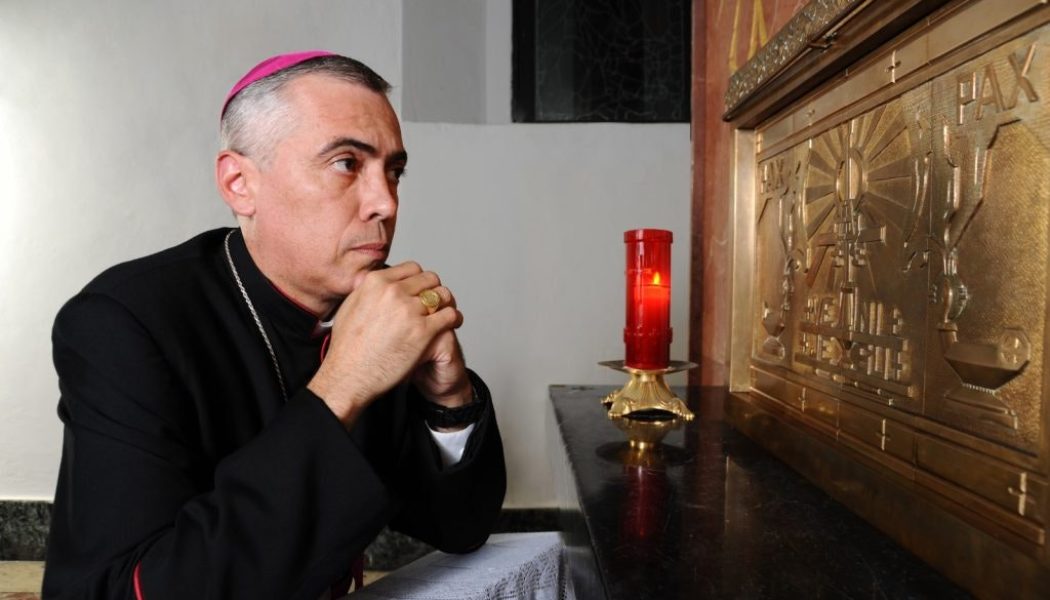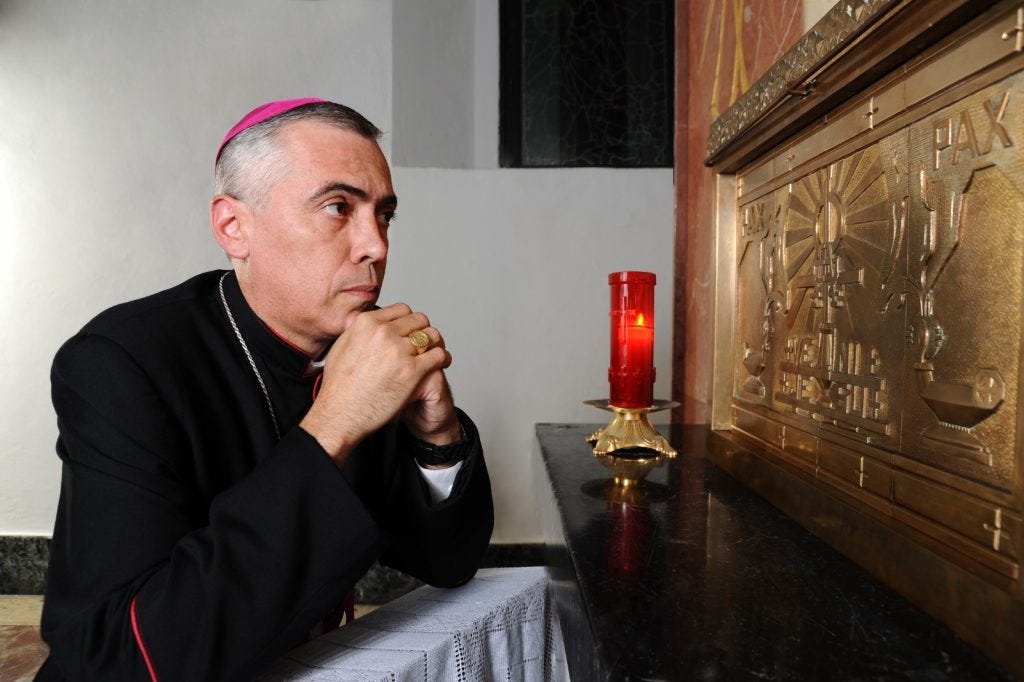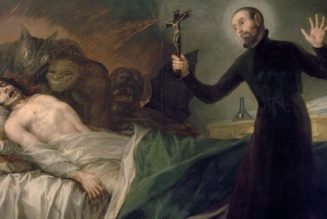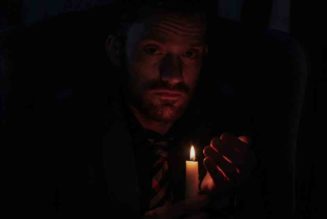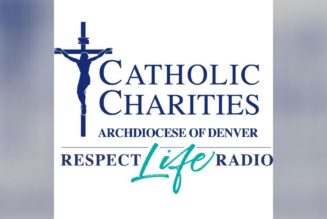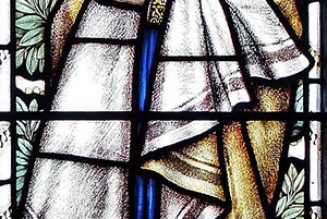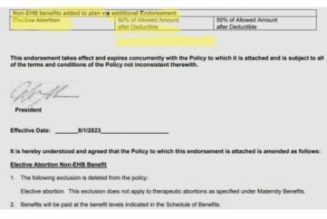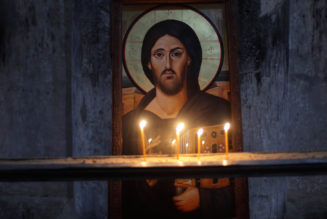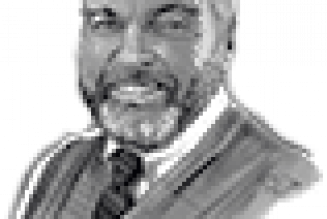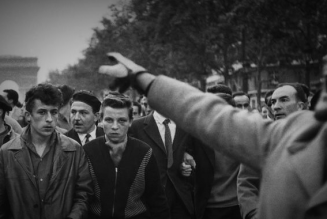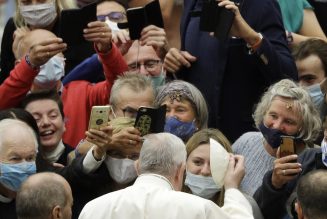Newly obtained correspondence shows the deposed Bishop of Arecibo repeatedly denied allegations that he had been disobedient to Pope Francis, and says he attempted to resolve some issues of disagreement between himself and other Puerto Rican bishops in the months before he was removed from office.
“Offering my resignation would be the same as declaring myself guilty of something of which I am consciously innocent, and would imply becoming an accomplice in a way of proceeding that is foreign to the Church.”
“That I have been … disobedient to the pope is a totally false statement. However, in an unacceptable way, I am told to submit my resignation under the pretext that failure to do so would be taken as evidence of the disobedience to which I am falsely accused,” Bishop Daniel Fernández Torres wrote in December 2021 to Cardinal Marc Ouellet, prefect of the Congregation for Bishops.
The letter was one of several in which Fernandez pushed back on a Vatican request for his resignation.
Despite those protests, the Holy See announced in March that Pope Francis had “relieved” Fernández of the pastoral care of his diocese, and appointed an apostolic administrator to assume governance of the diocese.
No official explanation was given for the highly unusual move, and sources close to the bishop say there was no obvious reason for intervention, no notable local scandal, and no indications of malfeasance.
Media reports at the time noted that Fernandez had declined to sign a joint statement with the other bishops of Puerto Rico on “the moral duty to be vaccinated” against the coronavirus, even after he was asked to do so by the island’s apostolic delegate. Media also reported that when he was subsequently summoned to Rome by the pope, Fernandez failed to go, citing the pandemic.
There were also reports that the bishop had failed to respect his brother bishops, because he did not send his seminarians to an interdiocesan seminary opened by the Puerto Rican bishops in March 2020.
In a statement published on the diocesan website on March 9 – the day his removal was announced – the bishop said he had been “replaced without even undertaking what would be a due canonical process to remove a parish priest.”
“I want you to know that it is not for me to explain a decision that I cannot explain myself, even if I accept it with the patience of Christ for the good of the Church,” Fernandez said in March. “I have not been prosecuted, nor have I been formally accused of anything.”
In the same March statement, the bishop said he was told by the pope’s representative in Puerto Rico, apostolic delegate Archbishop Ghaleb Bader, that he “had not been obedient to the pope, nor had [he] had sufficient communion with [his] brother bishops of Puerto Rico.”
Correspondence obtained by The Pillar shows that Fernandez had pushed back on requests for his resignation for months before his removal was announced.
In his Dec. 7, 2021 letter to Cardinal Ouellet, Fernandez said he had been informed of a request for his resignation, and asked for clarity on the reasons for that request.
“I request the delivery in writing of what has been verbally and generally requested of me, with the reasons for it, in case false information has reached the Holy See that leads to a decision of such magnitude. I am greatly surprised that this request, carried out without keeping any formality and that lacks true justice, could come directly from the pope,” Fernandez wrote.
“The Pope Francis whom I have met through the media, his writings, and through short but significant personal encounters, has led me to feel great admiration for his person and his ministry. For this reason, even though I have been told this verbally, I strongly doubt that [a request for my resignation], which suffers from such vices in its form and is contrary to all rights, comes directly from the pope.”
The bishop asked the cardinal for written confirmation of the pope’s request for his resignation, and for confirmation that he was accused of breaching communion with his brother bishops and showing “disobedience” to the pope. Fernandez noted several times in his letter that he had been afforded no formal process, and given no opportunity to defend himself against the allegations against him.
Fernandez told Ouellet in the same letter that he believed he had maintained good relations with his brother bishops.
“Only on very few occasions have I publicly differed from the pastoral thought of my brother bishops of Puerto Rico, but I have always done so giving explanations about my reasons for it. For example, when I have opposed what I consider to be using episcopal ministry to advance political agendas,” the bishop wrote.
The bishop said the reason he did not sign a statement on vaccines signed by the other Puerto Rican bishops was because he had already published a statement of his own, at the advice of his presbyteral council, which included the Congregation for the Doctrine of the Faith’s recognition that a Catholic might forego the coronavirus vaccine for “reasons of conscience.”
Fernandez wrote that he believed disagreement over areas of emphasis on the vaccine issue to be “the touchstone that sets off all this controversy.”
The bishop added that his own statement’s included the CDF’s recognition of conscientious objection to vaccines, and came in response to a Puerto Rican policy on the subject, and his sense of the need for a “letter of pastoral accompaniment to those who, in a genuine conflict of conscience, came to be listened to and treated with mercy.”
“I have never denied that getting vaccinated is not an act of love for others, but neither that those who do not do it for a reason of conscience love their brothers less,” the bishop wrote.
Noting that Arecibo, his see city, had the highest vaccination rate in the United States (inclusive of Puerto Rico), the bishop argued that “the respectful attitude towards the conscience of believers we developed was more successful than creating a non-existent problem by banning the conscious objection.”
In the same letter, Fernandez offered to send his men to Puerto Rico’s interdiocesan seminary, if the Holy See asked him to do so. He said he had been sending his men to a seminary in Spain because — noting that the Puerto Rican seminary had only been open for a year — he wanted to have “certain guarantees of stability.”
“I have always left the door open to join at the opportune moment, but if it is the express wish of the Holy See, I am willing to transfer the seminarians to the island,” the bishop wrote.
“In fact, I know that other bishops also have seminarians outside of the island.”
Concluding his letter to Oullette, Fernandez wrote that “as a matter of conscience, I cannot give another answer to what has been asked of me but to wait to be treated according to [justice]. I reiterate my communion with the successor of Peter and with my brother bishops, always from the truth and respect.”
There has been speculation in the Arecibo diocese that a decision to remove Fernandez was made after Cardinal Blase Cupich – a member of the Congregation for Bishops – had a meal with the bishop in late October 2021, while Cupich was visiting Puerto Rico on a hurricane relief trip with Catholic Extension.
According to sources close to Fernandez, Arecibo’s diocesan administrator, Bishop Álvaro Corrada del Río, S.J., told the Arecibo presbyterate during a March 15 meeting that Cupich had been involved in the decision.
The cardinal’s October meeting with Fernandez was a kind of unofficial apostolic visitation to the diocese, Corrada reportedly told the priests of the diocese.
But Corrada has reportedly retracted that statement, according to sources close to Fernandez and the diocese, and it is not clear that Cupich actually was involved in the process. While the cardinal visited Puerto Rico in late October 2021, Fernandez was first asked to resign from the diocese weeks before that, on Oct. 1, 2021.
The Archdiocese of Chicago has not yet responded to a request for comment about whether Cupich met with Fernandez, and about the nature of that meeting.
For his part, Fernandez told Pope Francis that he wanted the chance to explain any concerns that the pope might have had about him.
In a letter to Pope Francis dated Jan. 18, 2022, Fernandez explained that “I can clear up any doubts or distorted information that may have reached you and express my desire to continue guiding in serenity the beloved portion of the people that the Lord has entrusted to me for more than 11 years.”
The bishop emphasized that “since the first request for resignation, I have requested that the reasons for such a decision be presented to me in writing, but I have never received them. Only some generic things have been verbally and very informally mentioned to me, which I totally deny as they have been presented, and which in no way constitute serious causes to request the resignation of a bishop from his legitimate see.”
Fernandez told the pope he had begun the process of transferring his seminarians from the seminary in Spain they had been attending to Puerto Rico’s interdiocesan seminary in Puerto Rico.
He added that he had not yet scheduled a requested meeting with the pope because of the ongoing pandemic, and because of his responsibility to care for his elderly parents, who were 94 and 86 years old.
But Fernandez said he was eager to talk with Pope Francis.
“I appreciate your willingness to receive me personally and I regret not being able to go to Rome at this time, but I trust in good judgment and I hope to be able to explain myself about the indications that may have disturbed your most lofty ministry, either in writing or before an apostolic visitor who can guarantee the due process,” the bishop wrote.
“In my 14 years of episcopate I have always tried to live in the truth of the gospel in communion with the episcopal college and with His Holiness,” he added.
In February 2022, Fernandez wrote to the apostolic delegate, Archbishop Ghaled, to explain that he would not resign his office, and that he did not believe he had been given any reason that explained why he should. His resignation, he said, would be capitulation to an injustice, and his conscience would not allow him to accept that.
On March 7, 2022, less than one month after Fernandez sent that letter, he learned that his removal as Bishop of Arecibo would be announced on March 9.
Sources close to the bishop say he has not yet received a decree formally removing him, leaving open the canonical question of his actual status. It is not yet clear whether the bishop has scheduled any meeting with Pope Francis.
The Arecibo diocese is situated on Puerto Rico’s northern coastline, and was established in 1960. It is one of six dioceses on the island, which is a United States territory with its own episcopal conference. In 2020, there were 371,000 Catholics in the diocese, and 87 priests.
Join Our Telegram Group : Salvation & Prosperity
